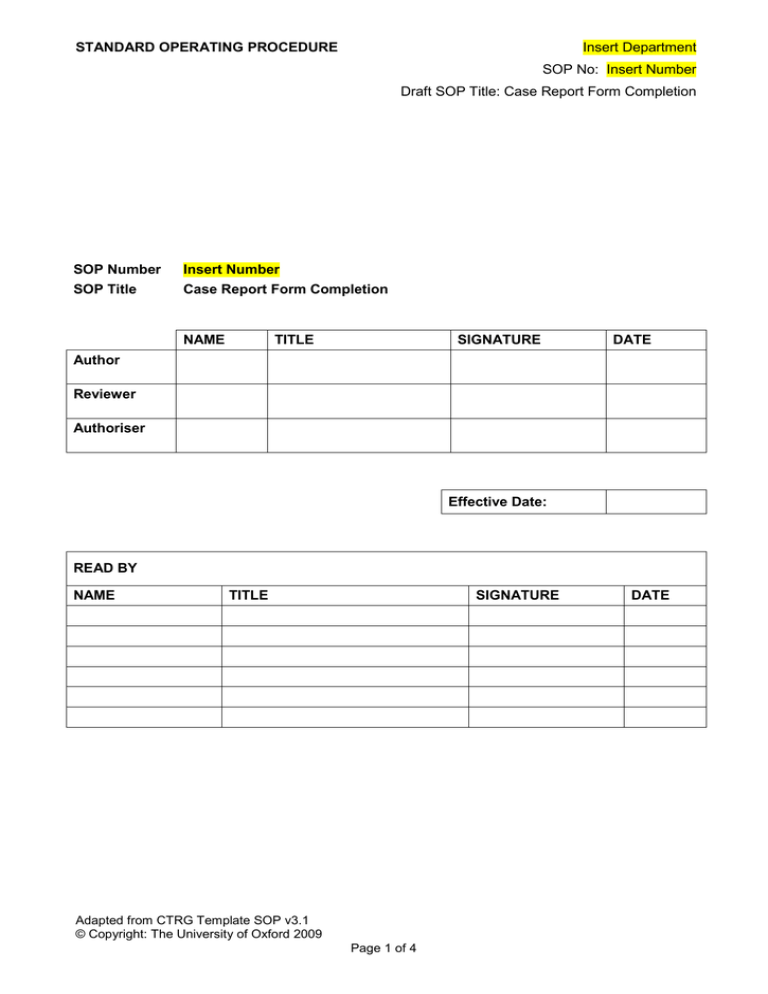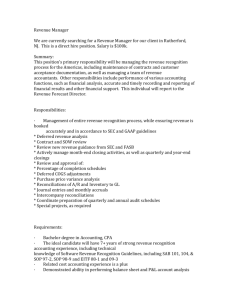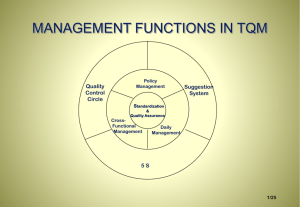SOP Template: Case Report Form Completion
advertisement

STANDARD OPERATING PROCEDURE Insert Department SOP No: Insert Number Draft SOP Title: Case Report Form Completion SOP Number Insert Number SOP Title Case Report Form Completion NAME TITLE SIGNATURE DATE Author Reviewer Authoriser Effective Date: READ BY NAME TITLE SIGNATURE Adapted from CTRG Template SOP v3.1 © Copyright: The University of Oxford 2009 Page 1 of 4 DATE STANDARD OPERATING PROCEDURE Insert Department SOP No: Insert Number Draft SOP Title: Case Report Form Completion This SOP has been written as an example which can be adapted for use in any department conducting clinical research where there are no SOPs in place. The contents of the SOP should be reviewed in conjunction with the procedures which take place within the department and the text should be altered accordingly. Delete highlighted text before finalising the document. 1. PURPOSE The purpose of this Standard Operating Procedure (SOP) is to describe the standard procedures to be followed when completing, signing and correcting Case Report Forms (CRFs). 2. INTRODUCTION The ICH Harmonised Tripartite Guideline for Good Clinical Practice defines a CRF as: ‘A printed, optical or electronic document designed to record all of the protocol required information to be reported to the sponsor on each trial subject.’ CRFs are the official documentation of the trial and may be closely examined during audits and/or inspections. Adherence to this specific procedure will ensure that a clear audit trail is available. 3. SCOPE This SOP applies to clinical research where the University of Oxford Radcliffe Hospitals NHS Trust has accepted the role of ‘Sponsor’, in the INSERT NAME department/ for the INSERT NAME/NUMBER trial (delete as appropriate). This SOP applies to paper CRFs. This SOP does not apply to commercially sponsored research or research sponsored by an external non-commercial organization. 4. RESPONSIBILITIES 4.1 Investigator or delegate The delegation of responsibility for CRF completion by the investigator should be documented on the appropriate form. CRF completion should only be carried out by the investigator or individuals listed on this form. 5. SPECIFIC PROCEDURE Always use black ballpoint pen. Do not use pencils. Ensure that the CRF contains only anonymised data unless it is specified in the protocol that CRFs are source documents and that patient names can be collected. Adapted from CTRG Template SOP v3.1 © Copyright: The University of Oxford 2009 Page 2 of 4 STANDARD OPERATING PROCEDURE Insert Department SOP No: Insert Number Draft SOP Title: Case Report Form Completion 6. Ensure data entry is as complete as possible. If data are unavailable then write ‘unknown’, ‘not applicable’ or ‘missing’ on the CRF. Do not leave blank spaces. Do not create additional fields on the CRF i.e. Only provide information which is asked for. Ensure that all entries are legible. Corrections should be made by crossing through the incorrect entry with a single line so that the original entry is still readable. Enter the correct data. Initial and date the correction. Never use correction fluid or obliterate entries made on the CRF. CRFs should be stored in a secure location during the course of the study and archived when the study has finished. See SOP: Archiving of Essential Documents. When all entries and corrections are deemed to be complete, the CRF must be signed by the principal investigator (or designee) to assert that they believe it to be complete and correct. FORMS/TEMPLATES TO BE USED Where Forms/Templates are referenced in the text, the numbers and titles are listed under this section. 7. INTERNAL AND EXTERNAL REFERENCES This section is used to list all controlled internal references (e.g. SOPs) and external references referred to within the text of the SOP only. 7.1 Internal References Design and Development of Case Report Forms Archiving of Essential Documents 7.1 External References ICH Harmonised Tripartite Guideline for Good Clinical Practice. 8. CHANGE HISTORY Where the SOP is the initial version: The SOP number is recorded. “Initial version” is noted in the ‘Significant’ section. Where replacing a previous SOP: The Effective Date for the previous version is recorded against that version in the table. Adapted from CTRG Template SOP v3.1 © Copyright: The University of Oxford 2009 Page 3 of 4 STANDARD OPERATING PROCEDURE Insert Department SOP No: Insert Number Draft SOP Title: Case Report Form Completion Record the new SOP number; record the Effective Date as “See page 1”. Main changes from the previous SOP(s) are listed under ‘Reason for Replacement’, in sufficient detail to provide guidance for training. If the SOP replaces a previous version or another procedure, the SOP number for the document is listed in the ‘Previous SOP No.’ column (see section 12 of this SOP for an example). SOP no. Effective Date Significant Changes Adapted from CTRG Template SOP v3.1 © Copyright: The University of Oxford 2009 Page 4 of 4 Previous SOP no.

